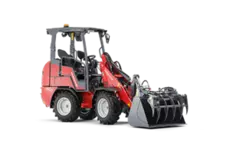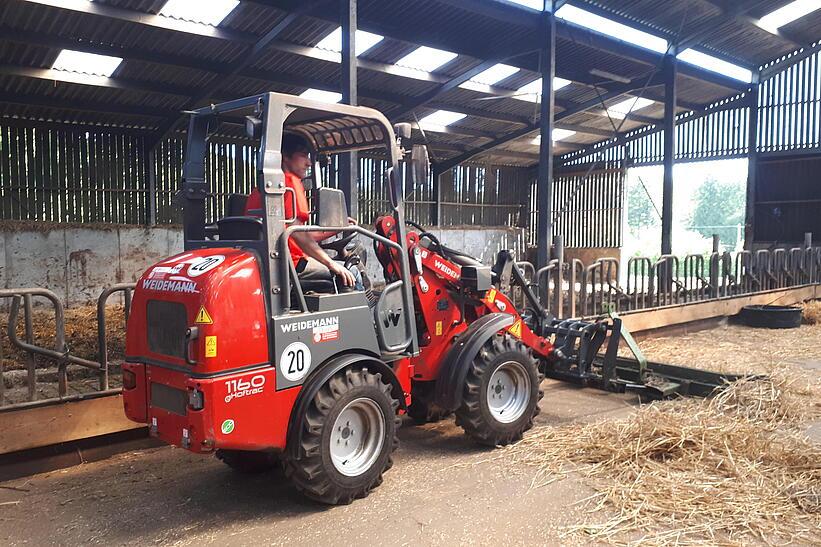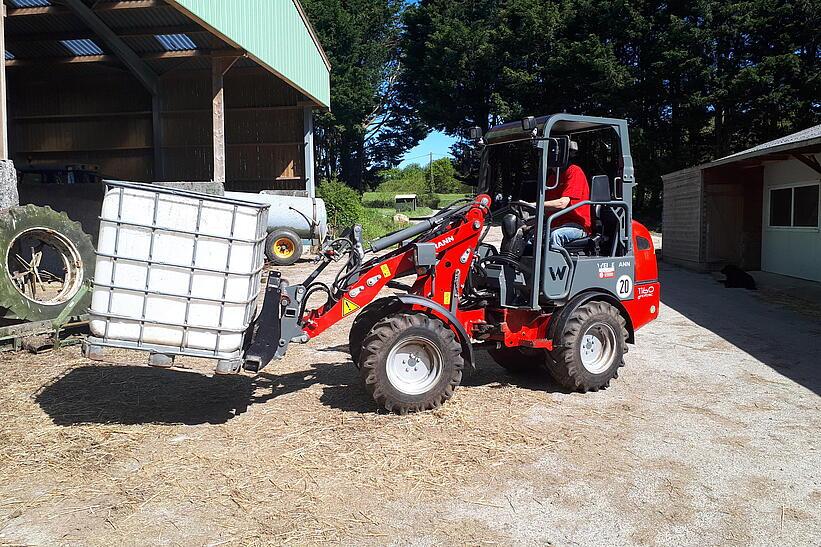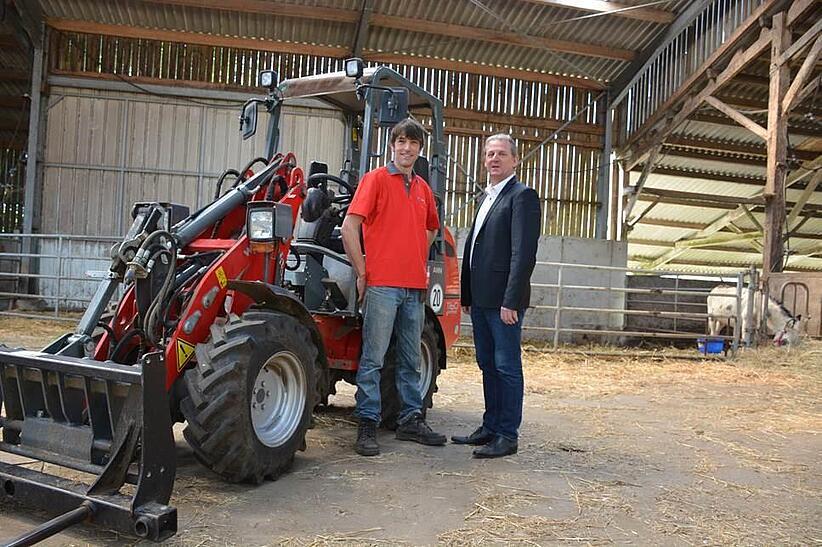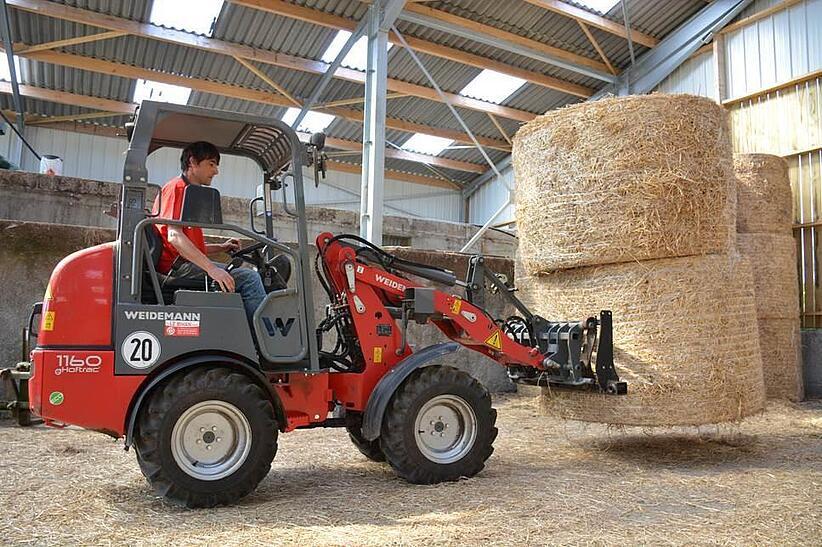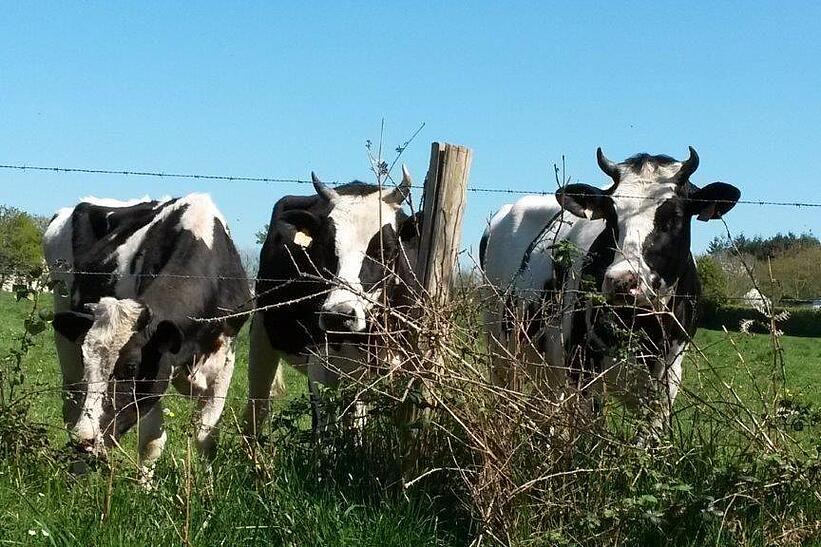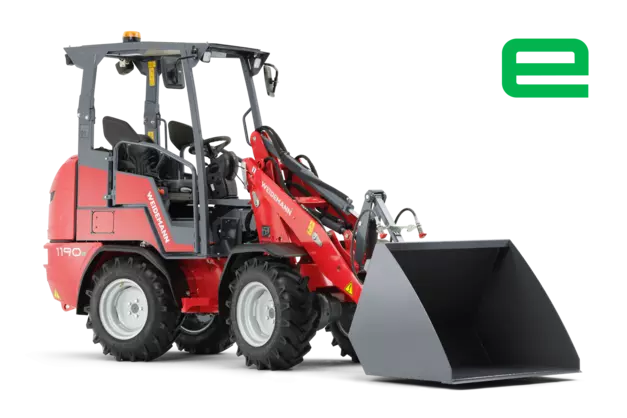An electric eHoftrac for the organic farm
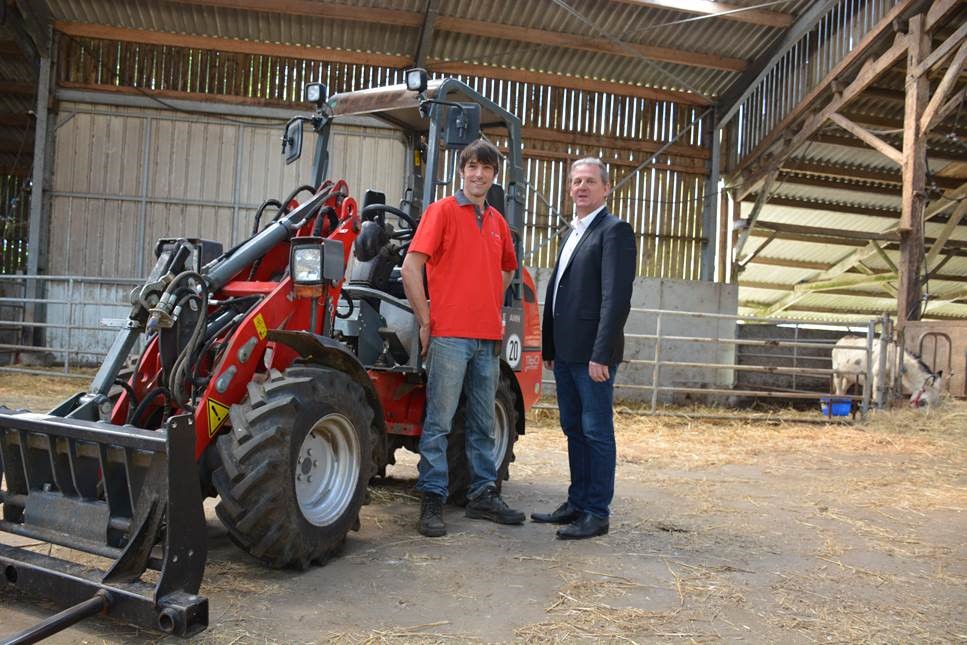
For 12 years, Jos Kok has been living in Bannalec, a commune in France's north-western region of Brittany. In this popular tourist area, many farmers produce organic foods.
Even Jos Kok's milk is organic. But Jos Kok has much more than dairy cattle on his farm. He has calves, goats, a pony, a donkey, alpacas, chickens, rabbits, quails, dogs and cats too. This sophisticated Frenchman also offers people the opportunity of taking a vacation on his farm and experiencing farm life first-hand. Guests on farm holidays can visit and even touch and stroke the animals. Jos Kok considers that preserving the region with its Celtic roots and protecting the environment are particularly important. These considerations were key when he was looking for a new farm loader.
An eHoftrac for the organic farmer.
Jos Kok would always use a conventional tractor for the day-to-day work on his farm. When he finally decided to invest in a farm loader, he quickly opted for the electric 1160 eHoftrac from Weidemann. Despite the higher acquisition costs of the machine compared to comparable diesel models, he made his choice for the sake of protecting both the environment and the animal welfare. Ever since the eHoftrac was put to work on his farm, his previous tractor has been standing idle in the stables. “The articulated eHoftrac is very compact and much easier to manoeuvre in the stable than the tractor,” explained Jos Kok. However, the most important thing for him is that he can now work in peace without disturbing his animals with exhaust fumes or noise.

Low operating costs
Another benefit of the electric drive is the very low operating cost: Whereas the tractor engine needs to continue running all the time, e.g. when the driver leaves the cab to cut open a new hay bale or put up a fence post, the eHoftrac only consumes power when it is working. This machine’s energy consumption is therefore much more efficient. Jos Kok's loader is actually in operation for around 7 hours a week. He recharges the battery every five days. “That clearly shows that the machine has not accumulated any working hours when stationary, because naturally I have been out and about in it for much longer than that.” Christophe Perret, Weidemann Sales Director for France told us: “You can more or less say that one working hour with the Hoftrac is equivalent to two working hours on the tractor. With a diesel consumption of around 7-8 litres per hour, the higher purchase price of an electric work machine is soon recouped.” In addition to the low energy consumption, the costs for service are also very low. “There is no engine oil to change, no filter to replace, the only requirement is that the machine must be lubricated regularly – that’s it!”, exclaimed Jos Kok happily.
The eHoftrac has become indispensable.
Since acquiring his new machine, the farmer from Brittany has already found plenty of new applications for his farm loader that were not possible with the tractor. As well as moving hay, straw and concentrated feed in and out of the stable, he also uses the loader for moving dung, sprinkling and moving manure. He also uses his Weidemann to move sacks of feed and other heavy goods or to ride out to check on his pasture land. Jos Kok draws his conclusion: less back pain because he no longer has to lug heavy sacks around and less knee problems because the eHoftrac has a much lower entrance than the big tractor.
More information
Go to next application report
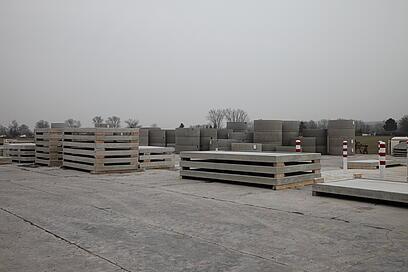
Full POWER, everyday
Abwassertechnik GmbH & Co. KG in Weißensee uses a 3080LP with 50 hp…
